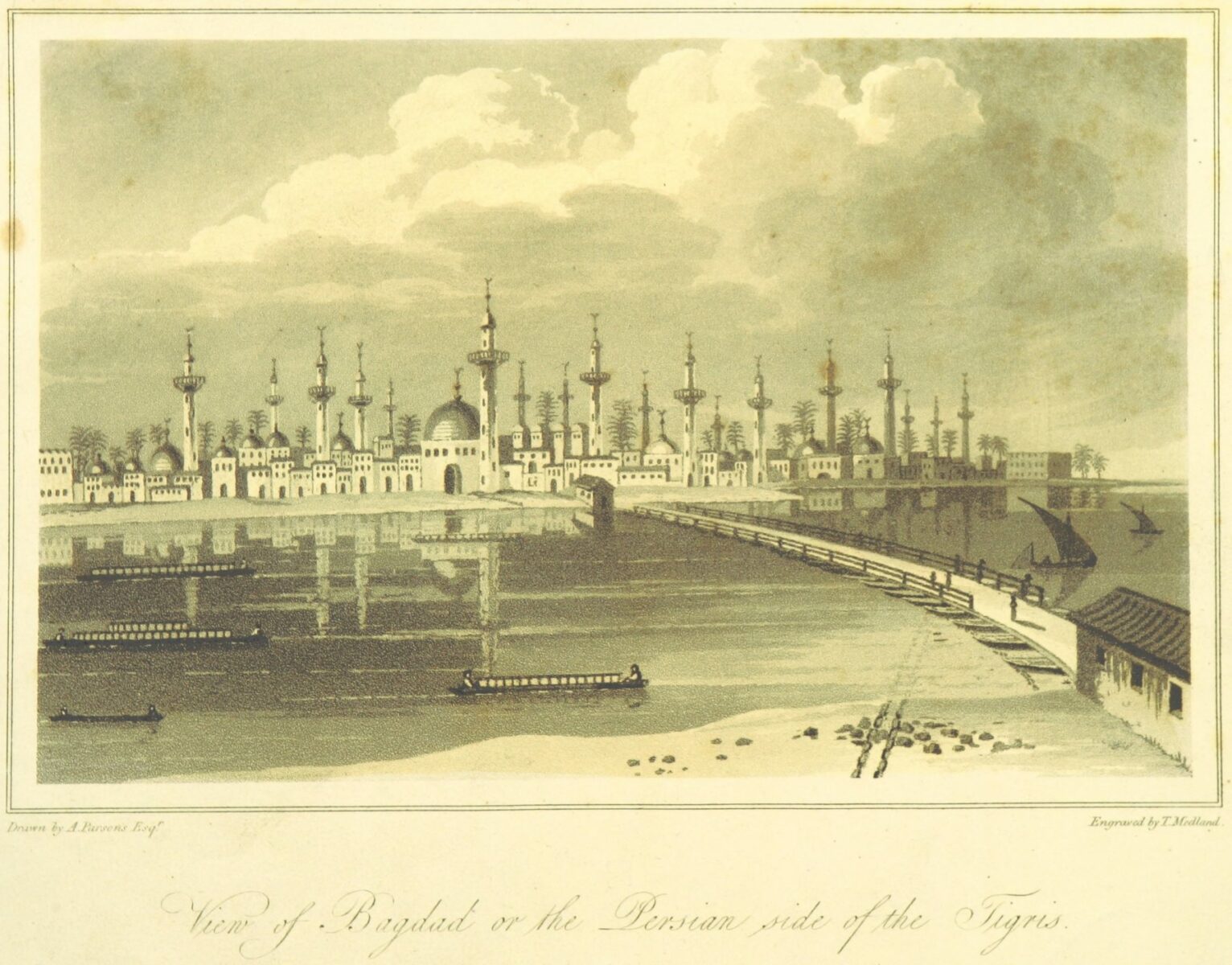Table Of Content

Caliphs were giving the translation movement, transmissions, authoring and intellectual achievements a very high level of respect and support that represented key factors to getting hold of the Hellenistic, Indian, and Persian knowledge and wisdom. The legacy of the house of wisdom library was wasted and the west did not find except Arabic sources to obtain the heritage of ancient human civilizations. The invasion of the Mongols and the destruction of the library marked the fall of Baghdad and ultimately the collapse of the Abbasid Caliphate that had left the Muslim world in crisis in the years to come. Al-Mansur founded a palace library modeled after the Sassanian Imperial Library, and provided economic and political support to the intellectuals working there.
h and 21st centuries
Additionally, he imported manuscripts of important texts that were not accessible to the Islamic countries from Byzantium to the library. The House of Wisdom was much more than a library, and a considerable amount of original scientific and philosophical work was produced by scholars and intellectuals related to it. This allowed Muslim scholars to verify astronomical information that was handed down from past scholars. Mūsā ibn Shākir was an astrologer, and a friend of Caliph Harun al-Rashid’s son, al-Ma’mun.
Halls of Ancient Wisdom: 7 Remarkable Ancient Libraries
The House of Wisdom (Bayt Al-Hikmah) was seen as one of the leading libraries in Islamic history that appeared during the Golden age of Islam. The research historically analyses the civilizational role of Bayt Al-Hikmah that has remarkably adapted the intellectual richness to serve scholars, scientists and worldwide thinkers. Other cities in the eastern provinces of the Muslim world also established House of Science (Dar al-‘Ilm), or more accurately Houses of Knowledge, in the 9th and 10th centuries to emulate that of Baghdad. Experts constantly worked to translate the old writings into Arabic to allow the scholars to understand, debate and build on them.
Translation
Its buildings had expanded widely on both banks and sides of the river Tigris, in a form of urbanism resembling that of contiguous towns, and its population had reached about one million. It was the centre for Islamic (if not the world) culture and civilisation, as well as the headquarters for the Arts, Sciences and Letters. It was crowded with Scientists, Physicians, philosophers, Mathematicians, Astronomers, Men of Letters, Poets, Writers, Translators, Scribes, and Professionals in the various arts and crafts, etc. It is important to put the House of Wisdom in the Context of the city of Baghdad as the Capital of the Islamic World during its Golden Age.
Extraordinary Women of the Golden Age
In the summer, from June through August, the average maximum temperature is as high as 44 °C (111 °F) and accompanied by sunshine. Rainfall has been recorded on fewer than half a dozen occasions at this time of year and has never exceeded 1 mm (0.04 in).[98] Even at night, temperatures in summer are seldom below 24 °C (75 °F). Baghdad eclipsed Ctesiphon, the capital of the Sassanians, which was located some 30 km (19 mi) to the southeast. Today, all that remains of Ctesiphon is the shrine town of Salman Pak, just to the south of Greater Baghdad which is where Salman the Persian is believed to have been buried. Ctesiphon itself had replaced and absorbed Seleucia, the first capital of the Seleucid Empire, which had earlier replaced the city of Babylon. As for the philosopher Kindi, who outlived Ma'mūn, he seems to have fallen victim to a conspiracy led by the Banū Mūsa brothers, who had grown jealous of his extensive personal library and plotted against him until they persuaded the then caliph, al-Mutawakkil ( ), to expel him from the House of Wisdom.
How To Unbar The Door In The A Life's Work Quest In Assassin's Creed Mirage - TheGamer
How To Unbar The Door In The A Life's Work Quest In Assassin's Creed Mirage.
Posted: Fri, 06 Oct 2023 07:00:00 GMT [source]
There have been many studies on history of Islamic libraries (Houses of Wisdom) that evolved thanks to Baghdad's house of wisdom. However there was no research that could show the impact of the House of Wisdom (Bayt al-Hikmah) in Baghdad on formation of other new Islamic libraries. The current study analyses the organizational structure of Bayt al-Hikmah al-Baghdad and its divisions and services that it provided for scholars and readers. The paper shall also deal with the funding sources and governmental endowments that were commonly known at the time of the Abbasids. It also shows the intellectual as well as managerial impacts that Baghdad's House of Wisdom (Bayt al-Hikmah) had on the spread of new Islamic libraries within the Muslim peninsula. The institution was not just an academic center but also played a role in civil engineering, medicine, and public administration in Baghdad.
Baghdad's House of Wisdom: Uniting East and West to pursue knowledge - Middle East Eye
Baghdad's House of Wisdom: Uniting East and West to pursue knowledge.
Posted: Thu, 02 Mar 2023 08:00:00 GMT [source]

The main objective of this paper is to explore the impact of the house of wisdom on the Islamic libraries, moreover it studies the organizational structure of Bayt al-Hikmah along with library divisions and services that it provided for scholars and readers. The study found out that, the house of wisdom has had a very organized management system especially in collecting and book cataloguing, the library had a great interest in debating and scientific circles in various topics and subjects. In addition, some new competing libraries have been influenced by the system of the house of wisdom in Egypt and Andalusia. It preserved the knowledge and heritage of the ancient civilizations and it contributed with a remarkable and an unprecedented discoveries that the western civilization have utilized to thrive.
Notable intellectuals
Meanwhile Arab culture was thriving, dazzling those Europeans fortunate enough to visit cities like Baghdad or Antioch. There, philosophers, mathematicians, and astronomers were steadily advancing the frontiers of knowledge, as well as keeping alive the works of Plato and Aristotle. When the best libraries in Europe held several dozen books, Baghdad’s great library, The House of Wisdom, housed four hundred thousand. Jonathan Lyons shows just how much “Western” ideas owe to the Golden Age of Arab civilization. Muslims learned how to make paper from the Chinese, and proceeded to transform this art into a major industry. This was a revolutionary development because the existing alternatives to paper were papyrus, which was fragile, and parchment, which was expensive; paper, on the other hand, was relatively cheap.
Baghdad's House of Wisdom: Uniting East and West to pursue knowledge

It would not be an exaggeration to imagine camel caravans loaded with magnificent books and manuscripts criss-crossing the Islamic World on their way to reach the magnificent Libraries of Bayt or Dar A-Hikma in Baghdad, Dar Al-Hikma in Cairo or the Great Library of Cordoba. Some of the historians have given Al-Ma’moun the title of “The Master of Arabic Civilisation” (Ustad Al-Hadhara Al-Arabiya) because of what he had left behind of useful scientific knowledge and cultural heritage. (MJ & AS, p. 133 quoting Rifa’I, vol. 1, p. 375 etc.) His achievements had great impact in introducing civility, civilisation, culture and heritage to the Arabs (and of course to the Muslims as a whole as well). The magnificent collection of books and manuscripts of the House of Wisdom was thrown into the muddy waters of the River Tigris whose brown colour turned black for days as a result of the washing away of the ink used in the of the writing of these books and manuscripts.
He lived his remaining years a lonely man and after his death his philosophical work fell into obscurity. Instruction at the House of Wisdom included rhetoric logic, metaphysics, theology, algebra, geometry, trigonometry, physics, biology, medicine, and surgery, as documented by Artz. Military might, economic strength, cultural and intellectual dominance, and staggering wealth established Baghdad as the center of an empire, with the original Bayt Al Hikma growing to become the thriving epicenter of the Islamic Golden Age. Founded in 8th century Baghdad by Caliph Harun al-Rashid of the Abbasid dynasty, Bayt Al Hikma was a melting-pot of rich intellectual traditions from across the Middle East and Europe. Baghdad had reached its highest reputation and glorious status during the reigns of the Caliphs Al-Rasheed, Al-Ma’moun, Al-Mu’tadhid and Al-Muktafi.
The pursuit of knowledge became a dominant feature of Abbasid society, attracting scholars and scientists from all over Europe and the Middle East to take part in this cultural birthing, including Persians and Christians. Scholarly work, particularly translation, became a hugely lucrative career, and some scholars such as Hunayn ibn Ishaq were said to earn the weight in gold of each manuscript they completed. The stars and planets were perceived to influence events on earth and astrology was thus carried out with the greatest attention to detail.Al-Mamun had an astronomical observatory built with the intention of addressing the claims of one of the most dominant voices in the ancient world, Ptolemy. Better-known after its translation as the Almagest, the text initiated a flurry of research and commentary at the House of Wisdom which would last for centuries. It was in 1258 that the accomplishments of the House of Wisdom and the Islamic Golden Age were brought to a cruel halt. During the Mongol invasion of Baghdad under Hulegn, grandson of Genghis Khan, the mosques, libraries, homes and hospitals of the great city were all destroyed.
The death in AD 809 of al-Rashid resulted in a civil war among the Abbasids, after which his son al-Mamun managed to take power after a long struggle with his half-brother. Intent on securing his rule, al-Mamun moved his official residence to Baghdad, bringing his authority and royal patronage to the House of Wisdom. The House of Wisdom’s main project was collecting and translating numerous works from the Greek literary canon, which established an enormous influence on Arab thought.
The main offices of the government companies for commerce, trade, and industry are located in Baghdad, as are the branches of foreign companies operating in Iraq. Traditionally, people of the same sect, ethnic or tribal group, or craft have lived together in separate quarters or neighbourhoods. Although oil wealth and massive migration from rural areas to the city have resulted in distribution based on socioeconomic stratification, traditional patterns have to a great extent remained, though in somewhat different form. Shiʿi migrants from southern war zones in the 1980s and ’90s settled almost exclusively in the eastern suburb of Saddam City, and Sunni supporters of the ruling regime—many from the region in and around the city of Tikrīt—settled in the Al-Karkh district.
Tensions between the caliphate and the old establishment continued into the reign of al-Muʿtaṣim (833–842) and forced him to move the capital from Baghdad to nearby Sāmarrāʾ. Bayt al-Hikmah remained intact in Baghdad, but its association with al-Maʾmūn in 10th-century texts may indicate that its collection was not supplemented after the capital was moved to Sāmarrāʾ. Whatever may have remained of the collection in 1258 was destroyed in the Mongol sack of Baghdad. The research paper showed that the Abbasid Dynasty had much to offer for the human civilization of intellectual and scientific progress.

No comments:
Post a Comment